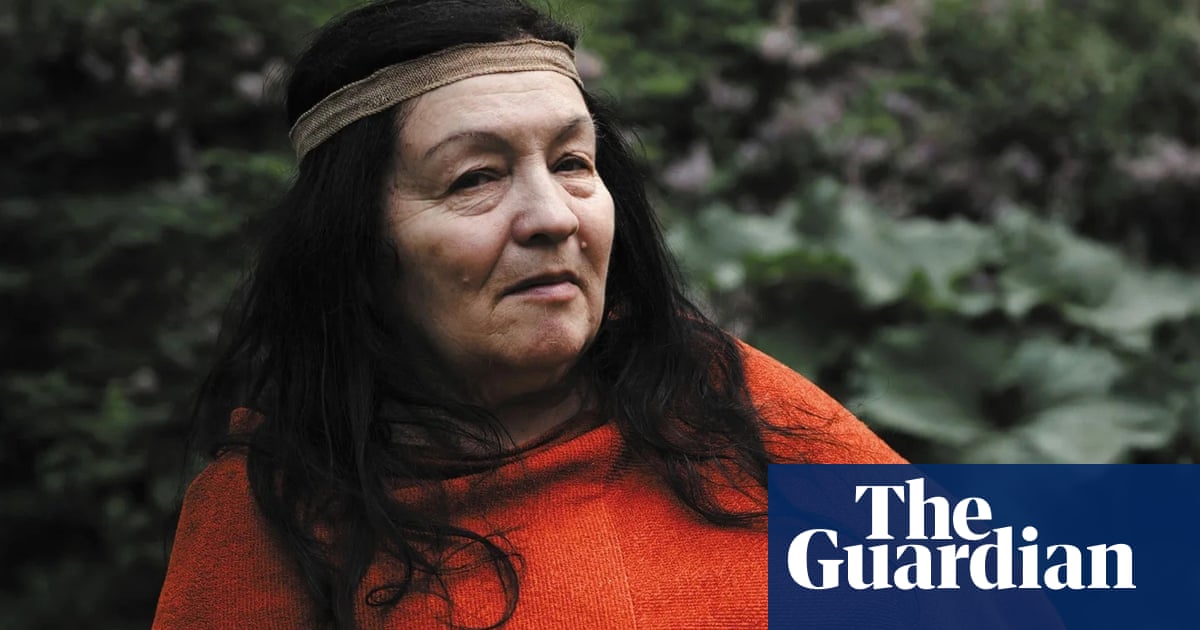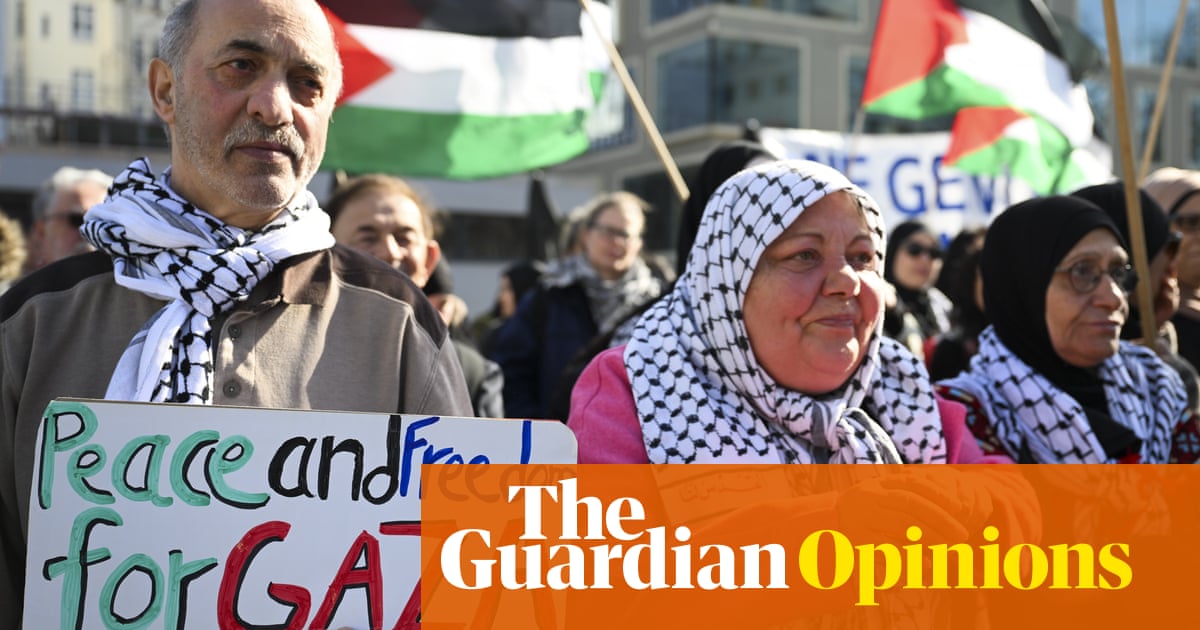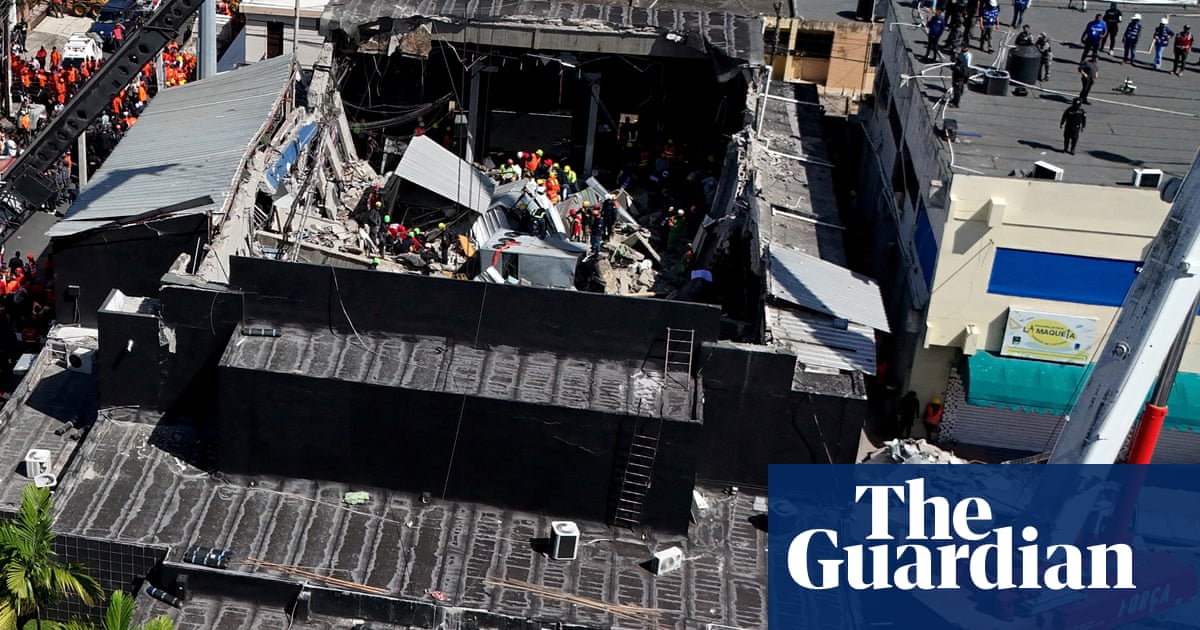What do we know so far about the latest ceasefire talks?

Peter Beaumont
On Tuesday an Israeli negotiating team travelled to Qatar while a report from Reuters – denied by his office and Egypt – said that the prime minister, Benjamin Netanyahu, was planning to travel to Cairo for talks.
Instead, Netanyahu’s office said he had toured a buffer zone inside Syria that was recently seized by Israeli forces after the fall of Syria’s Bashar al-Assad, which he said would remain under Israeli control for the foreseeable future.
Two Egyptian security sources added, however, that Netanyahu was not in Cairo “at this moment” but that a meeting was under way to work through the remaining points – chief among them a Hamas demand for guarantees that any immediate deal would lead to a comprehensive agreement later.
CIA director William Burns, a key US negotiator, was due in Doha on Wednesday for talks with Qatari prime minister Sheikh Mohammed bin Abdulrahman Al Thani on bridging remaining gaps between Israel and Hamas, Reuters reported.
Hamas said in a statement that a deal was possible if Israel stopped setting new conditions. A Palestinian official close to the mediation efforts said negotiations were serious, with discussions under way about every word.
Reinforcing the sense of optimism the White House spokesperson John Kirby said in an interview with Fox News: “We believe – and the Israelis have said this – that we’re getting closer, and no doubt about it, we believe that, but we also are cautious in our optimism.”
He added, however: “We’ve been in this position before where we weren’t able to get it over the finish line.”
Key events
Show key events only
Please turn on JavaScript to use this feature
Israel will remain on the strategic Mount Hermon site on the Syrian border until another arrangement is found, prime minister Benjamin Netanyahu has said.
Israeli troops occupied Mount Hermon when they moved into a demilitarised zone between Syria and the Israeli-occupied Golan Heights following the collapse of Syrian President Bashar al-Assad’s government earlier this month.
Officials have described the move as a limited and temporary measure to ensure the security of Israel’s borders but have given no indication of when the troops might be withdrawn and defence minister Israel Katz last week ordered troops to prepare to remain on Mount Hermon over the winter.

Netanyahu went to the site for an operational briefing with military commanders and security officials.
In a statement issued by his office, he said:
We are holding this assessment in order to decide on the deployment of the IDF in this important place until another arrangement is found that ensures Israel’s security.
Israel’s move into the buffer zone created following the 1973 Arab-Israeli war has been criticised as a violation of international agreements by a number of countries and the United Nations, which have called for the troops to be withdrawn.
You can read my colleague Peter Beaumont’s full report on the Gaza ceasefire talks here:
What do we know so far about the latest ceasefire talks?

Peter Beaumont
On Tuesday an Israeli negotiating team travelled to Qatar while a report from Reuters – denied by his office and Egypt – said that the prime minister, Benjamin Netanyahu, was planning to travel to Cairo for talks.
Instead, Netanyahu’s office said he had toured a buffer zone inside Syria that was recently seized by Israeli forces after the fall of Syria’s Bashar al-Assad, which he said would remain under Israeli control for the foreseeable future.
Two Egyptian security sources added, however, that Netanyahu was not in Cairo “at this moment” but that a meeting was under way to work through the remaining points – chief among them a Hamas demand for guarantees that any immediate deal would lead to a comprehensive agreement later.
CIA director William Burns, a key US negotiator, was due in Doha on Wednesday for talks with Qatari prime minister Sheikh Mohammed bin Abdulrahman Al Thani on bridging remaining gaps between Israel and Hamas, Reuters reported.
Hamas said in a statement that a deal was possible if Israel stopped setting new conditions. A Palestinian official close to the mediation efforts said negotiations were serious, with discussions under way about every word.
Reinforcing the sense of optimism the White House spokesperson John Kirby said in an interview with Fox News: “We believe – and the Israelis have said this – that we’re getting closer, and no doubt about it, we believe that, but we also are cautious in our optimism.”
He added, however: “We’ve been in this position before where we weren’t able to get it over the finish line.”
Opening summary
Philip Wen
Hello and welcome to our live coverage of the Middle East crisis.
The pace of talks aimed at securing a ceasefire-for-hostages agreement in Gaza appeared to be accelerating, amid claims on both sides that a deal may be within reach, perhaps within days.
Senior Israeli officials, Hamas sources, and US and Arab officials have all expressed optimism that a deal may be close for a phased release of the surviving hostages in Gaza in exchange for a ceasefire and the release of Palestinian prisoners held in Israeli jails.
About 60 living hostages, mainly Israeli and dual nationals, are believed to be still held in Gaza as well as the bodies of 35 others, out of more than 240 who were abducted to Gaza during Hamas’s surprise attack on Israel on 7 October 2023.
More on that shortly. First, in other developments:
-
A ceasefire between Turkey and the U.S.-backed Kurdish Syrian forces (SDF) around the northern Syrian city of Manbij has been extended until the end of this week, state department spokesperson Matthew Miller has said. Washington brokered an initial ceasefire last week after fighting that broke out earlier this month as rebel groups advanced on Damascus and overthrew the rule of Bashar al-Assad.
-
Geir Pedersen, the UN’s special envoy for Syria, however, has warned that the conflict “has not ended”, highlighting the clashes between the Turkish-backed and Kurdish groups.
-
Benjamin Netanyahu said Tuesday that Israeli forces will stay in a buffer zone on the Syrian border, seized after the ouster of Syria’s President Bashar Assad, until another arrangement is in place “that ensures Israel’s security.” Netanyahu made the comments from the summit of Mount Hermon about 10 kilometers (6 miles) from the border with the Israel-held Golan Heights.
-
Israeli lawmakers narrowly approved the country’s 2025 state budget in an initial vote. The 59-57 vote in the Knesset – the Israeli parliament – to pass the wartime austerity budget in its first of three readings.
-
A UN refugee agency official said that about one million Syrian refugees are expected to return to the country in the first six months of 2025, with thousands of people already having returned to the country mostly from Turkey, Lebanon and Jordan.
-
Israel’s defence minister, Israel Katz, said his country’s forces will maintain “security control” over the devastated Gaza Strip, even after the war is over, with Israeli soldiers able to act with “full freedom of action” over the territory.
-
At least 45,059 Palestinian people have been killed and 107,041 injured in Israeli airstrikes on Gaza since 7 October 2023, the Gaza health ministry said in a statement. Of those, 31 Palestinians were killed and 79 injured in the latest 24-hour reporting period, the ministry said.
-
At least 10 people were confirmed killed in an Israeli airstrike on a house in Gaza City that destroyed the building, while further north in the town of Beit Lahiya at least 15 people were reportedly killed while they were sheltering in a house.
-
Ahmed al-Sharaa, the leader of the Hayat Tahrir al-Sham (HTS) group that toppled Assad, said all rebel factions would “be disbanded and the fighters trained to join the ranks of the defence ministry” during a meeting with members of the minority Druze community.
-
The EU’s foreign policy chief, Kaja Kallas, said the bloc would send an ambassador back to Damascus. “We are ready to reopen our delegation, which is the European embassy, and we want this to be fully operational again,” she said. Kallas added that the EU would aim to help authorities restore basic services like electricity, water and infrastructure.

.png) 3 months ago
37
3 months ago
37













































